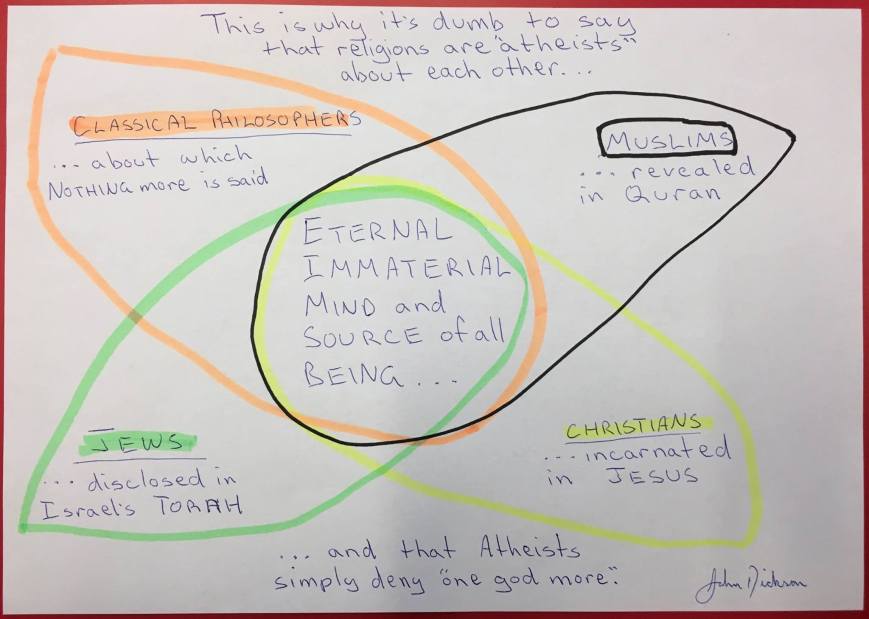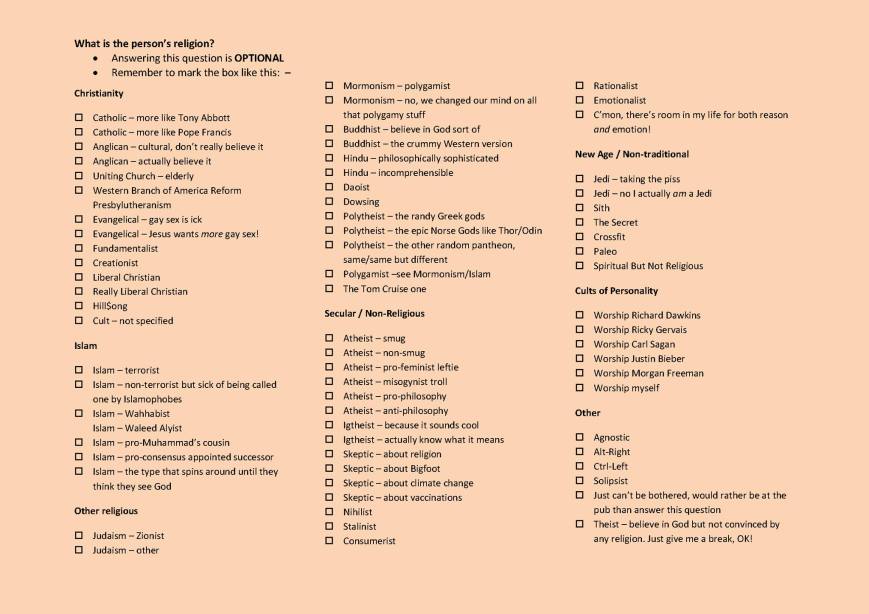
Truth claims are everywhere.
Sometimes the connections are complicated: our systems of justice are predicated on the assumption of free will, because without the choice to act or not in a particular situation, there can be no question of responsibility for actions. This in turn makes the truth claim that rigid materialism is false (because otherwise our actions are merely the results of random unguided processes – indeed, we are just collections of random unguided processes).
The ones I’m interested in today are a little more straightforward, but still quite subtle. For example:
“Religion should evolve with society.”
Buried in this statement is the claim that religious beliefs do not contain ultimate truth, and that religions are really just support clubs. If the core teaching of a religion should evolve, then it contains no absolute truth, for such truth would transcend social fashions.
Continue reading →





